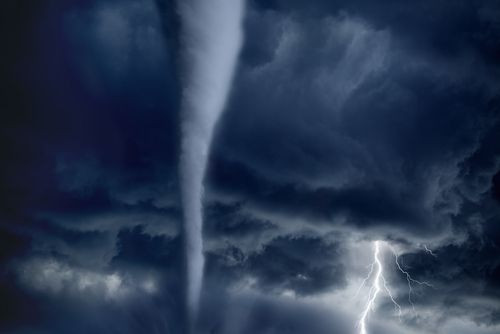Hurricane Season Warning: Female Names Given To Storms Inspire Less Fear And So Prove More Deadly

Personification means attributing human traits to animals, inanimate objects, abstract concepts, and now, apparently, violent acts of nature. A team of researchers at the University of Illinois found that people perceive hurricanes with feminine names to be less threatening than hurricanes with masculine names, and as a result, female hurricanes have caused significantly more deaths.
"Names are assigned arbitrarily, based on a predetermined list of alternating male and female names," said Kiju Jung, the lead author of the study and a doctoral student at the University of Illinois' College of Business. "If people in the path of a severe storm are judging the risk based on the storm's name, then this is potentially very dangerous."
What’s in a Name? Maybe Everything
“Experience shows that the use of short, distinctive names in written as well as spoken communications is quicker and less subject to error than … latitude-longitude identification methods,” according to an article posted on the website of the National Hurricane Center.
Before storms were named, people often became confused whenever two tropical storms occurred at the same time, mistaking one storm advisory for warnings about the other storm located miles away. Clement Wragge, an Australian meteorologist, solved this problem near the end of the 19th century by giving women's names to tropical storms — considered appropriate given the unpredictable nature of stormy weather. During World War II, Army and Navy meteorologists adopted Wragge’s practice, especially when plotting the movements of storms over the Pacific Ocean. More generally, the U.S. began using female names in 1953 and later, in 1978, men’s names were added to eliminate potential sexism. (Changing eras, changing attitudes.)
For the current study, the researchers examined actual hurricane fatalities for all storms that made landfall in the U.S. from 1950-2012, excluding Hurricane Katrina (2005) and Hurricane Audrey (1957) because they were unusually deadly. Analysis proved that severe hurricanes with a more feminine name resulted in a greater death toll. In fact, for damaging storms, the more feminine the storm's name, the more people it killed.
In a follow-up set of experiments, the research team examined how the gender of names affected people's judgments about storms. People who were asked to imagine being in the path of "Hurricane Alexandra" (or "Christina" or "Victoria") rated the storm as less risky and intense compared to those asked to imagine being in the path of "Hurricane Alexander" (or "Christopher" or "Victor").
"In judging the intensity of a storm, people appear to be applying their beliefs about how men and women behave," Dr. Sharon Shavitt, a professor of marketing and co-author of the report, said in a press release. "People imagining a 'female' hurricane were not as willing to seek shelter."
Hurricanes kill more than 200 people in the U.S. each year, with severe hurricanes capable of producing many more casualties. Hurricane Katrina, for instance, and the subsequent floods killed an estimated 1,833 people. The researchers believe their findings have important implications for policymakers, meteorologists, the news media and the public regarding hurricane communication and preparedness. Hurricane season has already begun for the U.S. and will extend through the end of November, so be warned and don't let a female name catch you off guard.
Source: Jung K, Shavitt S, Viswanathan M, Hilbe J. Female hurricanes are deadlier than male hurricanes. Proceedings of the National Academy of Sciences. 2014.



























